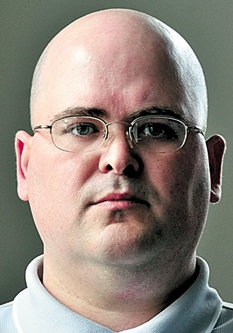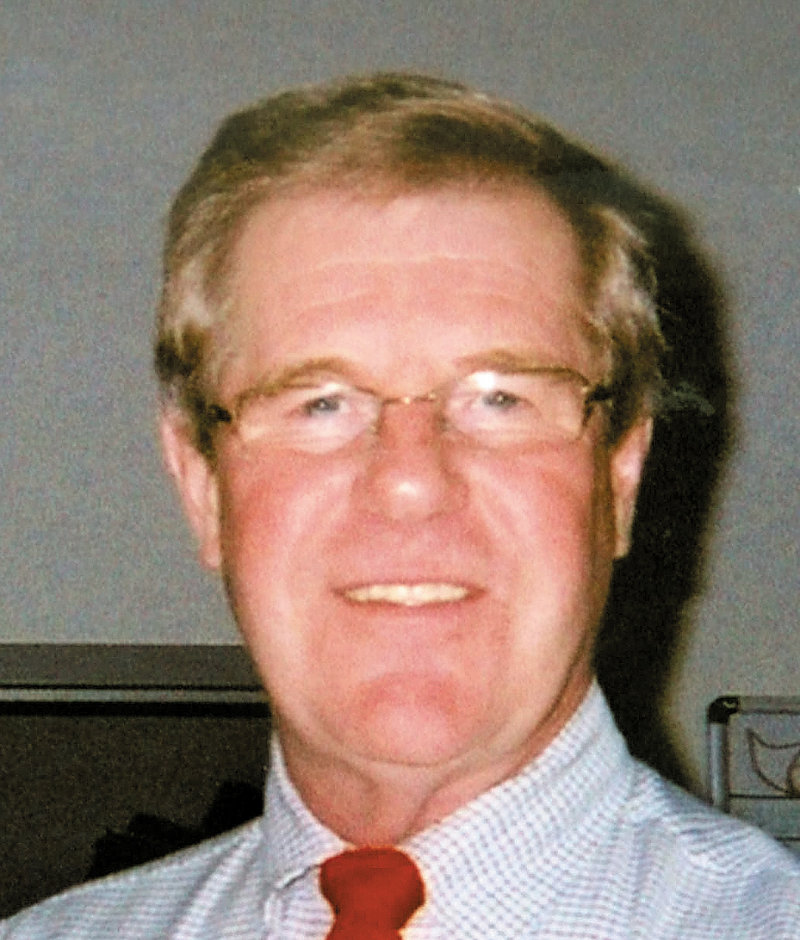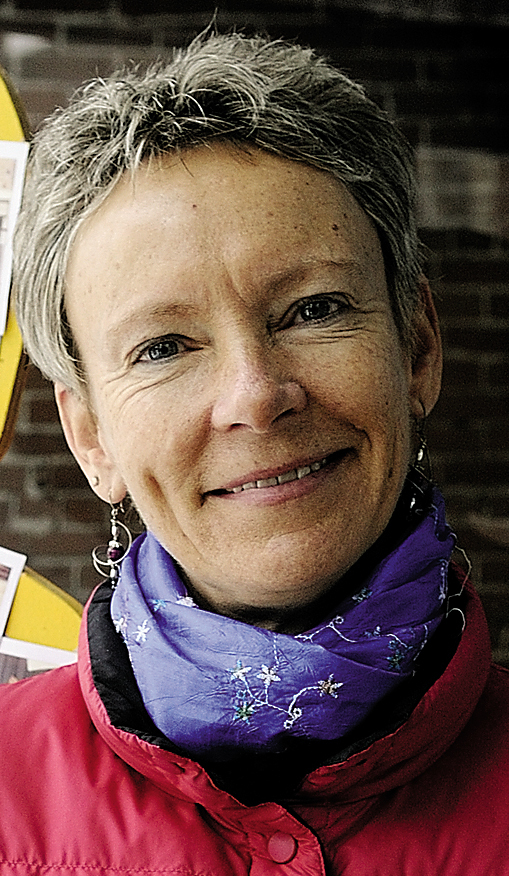WATERVILLE – “It’s the minority party — clearly. Being a Republican in Waterville is clearly an uphill battle.”
Those words were spoken a decade ago by Paul LePage, then one of two Republican city councilors. Both had decided not to seek re-election and there was no Republican candidate to oppose the re-election of incumbent Mayor Nelson Madore, a Democrat.
Waterville Republicans — long the underdogs in a city dominated by registered Democrats — had virtually disappeared from key positions in city government.
LePage changed all that in 2003 when he won the mayoral election in a three-way race, setting off seven years as the city’s most popular, outspoken and powerful Republican. Democratic city councilors have acknowledged that LePage became a prominent — and mostly beneficial — counterweight to their proposals and votes.
But LePage resigned as mayor earlier this year just hours before being inaugurated as Maine’s new governor.
Now, as a new mayoral election looms in a post-LePage Waterville, it appears that city Republicans once again face the possibility of heading back into the wilderness.
“My guess is what’s going on here is LePage didn’t necessarily represent any success for the broader Republican party in Waterville; his success didn’t do anything to bolster the Republican party as a whole,” said Mark Brewer, a political science professor at the University of Maine who lived in Waterville before LePage become mayor. “LePage won elections on the basis of his own background and personality. LePage is a big personality and when someone like that leaves the political arena, it’s often not surprising it’s a struggle to fill that gap.”
John M. Fortier, a former Republican city councilor in Waterville who served alongside councilor LePage, said Waterville Republicans have traditionally struggled to fill that gap because they are greatly outnumbered. According to city records for 2010, there were 5,101 registered Democrats in Waterville, compared with 2,177 Republican and 4,180 registered voters who are unenrolled in a party.
That gap is all the more apparent now that LePage is gone, Fortier said.
“The Republican party in the city of Waterville is pretty much defunct from a standpoint of being able to solicit candidates . . . willing to run for the council or higher office,” said Fortier, who now lives in Belgrade and works in Waterville.
THREE-WAY RACE
Andrew Roy will represent Republicans in the mayoral election in November. He was picked during a recent Republican City Committee caucus, which was attended by six people. Roy also was elected committee chairman and his father, Patrick, was named vice chairman.
By comparison, about 75 people turned out for the recent Democratic City Committee caucus.
Roy, 37, a self-employed disc jockey, has admitted that he’s had trouble getting his candidacy going. Last week, after saying he could get just five out of 100 registered Republicans in one of the city’s wards to sign his petition to get on the Nov. 8 ballot, Roy announced he was dropping out of the race for mayor. He reversed himself a day later, saying he faked dropping out.
Petition signatures for candidates to get on the election ballot are due by 4:30 p.m. on Sept. 9 at the city clerk’s office.
Also in the mayoral race are Democratic Mayor Dana Sennett and unenrolled candidate Karen Heck.
Sennett, 59, an advertising account executive for the Morning Sentinel, has been a councilor for 15 years, with 10 of those as chairman.
Heck, 59, is co-founder of a local nonprofit group for girls called Hardy Girls, Healthy Women and is known as a women’s rights activist.
Sennett defeated Roy in a 557-123 vote in June to serve out the remainder of LePage’s term as mayor.
Under LePage as mayor, the city held and then lowered the tax rate, as LePage vetoed or threatened to veto what he deemed unneeded spending.
This spring, in the first city budget since LePage departed, an all-Democrat City Council increased the tax rate by 50 cents, adding $50 to the tax bill on property values at $100,000.
That’s a worry to Chris Gaunce, a registered Republican in Waterville who is also operations manager at Central Maine Motors Auto Group in the city. Gaunce’s father, Charles R. Gaunce, ran unsuccessfully as the Republican candidate for mayor in 1999.
“My biggest concern going forward is the tax base and how they spend our tax revenues,” Chris Gaunce said. “The minute Paul (LePage) gets out of office, the first thing they do is raise taxes. Really, what did they raise them for — things like trails — things that are nice to have when you’re prosperous, but they are not a necessity, more of a luxury item. People are working their tails off to make ends meet.”
The concern about city government living within taxpayers’ means should be shared by all, party registration aside, he said.
“We need to find a reason to some together as one community,” Gaunce said. “It’s not whether it’s a Democrat or Republican issue; we have to look at these issues together and drop party affiliations.”
According to city records, Waterville’s voting population during the last decade has modestly increased while becoming more partisan — even as the overall city population has stayed basically the same.
Waterville’s population in 2010 was listed as 15,722 by the U.S. Census, an increase of less than 1 percent compared with a decade ago. During that same time period, however, the number of registered voters in Waterville has increased by 10 percent, from 12,588 to 13,823, according to records at the city clerk’s office.
The number of registered Democrats has ballooned by 17 percent during that period, while Republicans kept pace with an increase of 13 percent. Registered Green party voters increased by 8 percent and unenrolled voters have gone up by 5 percent.
COMMON GROUND?
The very fact that Waterville continues to hold partisan elections — in which candidates must identify with a political party or as unenrolled — has become a rarity among communities of similar sizes throughout Maine, according to James Melcher, a political science professor at the University of Maine at Farmington.
Even so, “the local issues don’t always line up where people would go nationally, so personal contact is so important at the local level,” Melcher said. “People might know you as a neighbor or friend. That can trump party in a local election.”
But party registration remains a key determining factor in the direction elected officials will take the city, said Brewer, of the University of Maine.
Fortier recalls that when he served as chairman of the Waterville GOP, he’d spend weekends at home poring through lists of registered Republicans, trying to recruit people to run for office. LePage was one of Fortier’s recruits.
Waterville Republicans need to focus on strengthening the party base, he said.
“You got to build the party before you find a viable candidate. You got to be able to support the candidate before you find a candidate,” Fortier said. “Unless the candidate has a machine behind him, so to speak, it will be a lonely battle finding a candidate.”
Fortier said he is at least slightly encouraged by the sense that several city councilors — though they’re all Democrats — are continuing a conservative spending approach that LePage advocated while he was mayor.
Meanwhile, though, Republican candidates will be needed to act as counterweights in city government, particularly on spending issues, Fortier said.
“There are so few Republicans in each ward,” he said. “You got to have somebody willing and able to step into the fray and a Republican candidate in Waterville has to work twice as hard.”
Morning Sentinel Staff Writer Scott Monroe can be contacted at 861-9239 or at:
smonroe@centralmaine.com
Send questions/comments to the editors.





Success. Please wait for the page to reload. If the page does not reload within 5 seconds, please refresh the page.
Enter your email and password to access comments.
Hi, to comment on stories you must . This profile is in addition to your subscription and website login.
Already have a commenting profile? .
Invalid username/password.
Please check your email to confirm and complete your registration.
Only subscribers are eligible to post comments. Please subscribe or login first for digital access. Here’s why.
Use the form below to reset your password. When you've submitted your account email, we will send an email with a reset code.